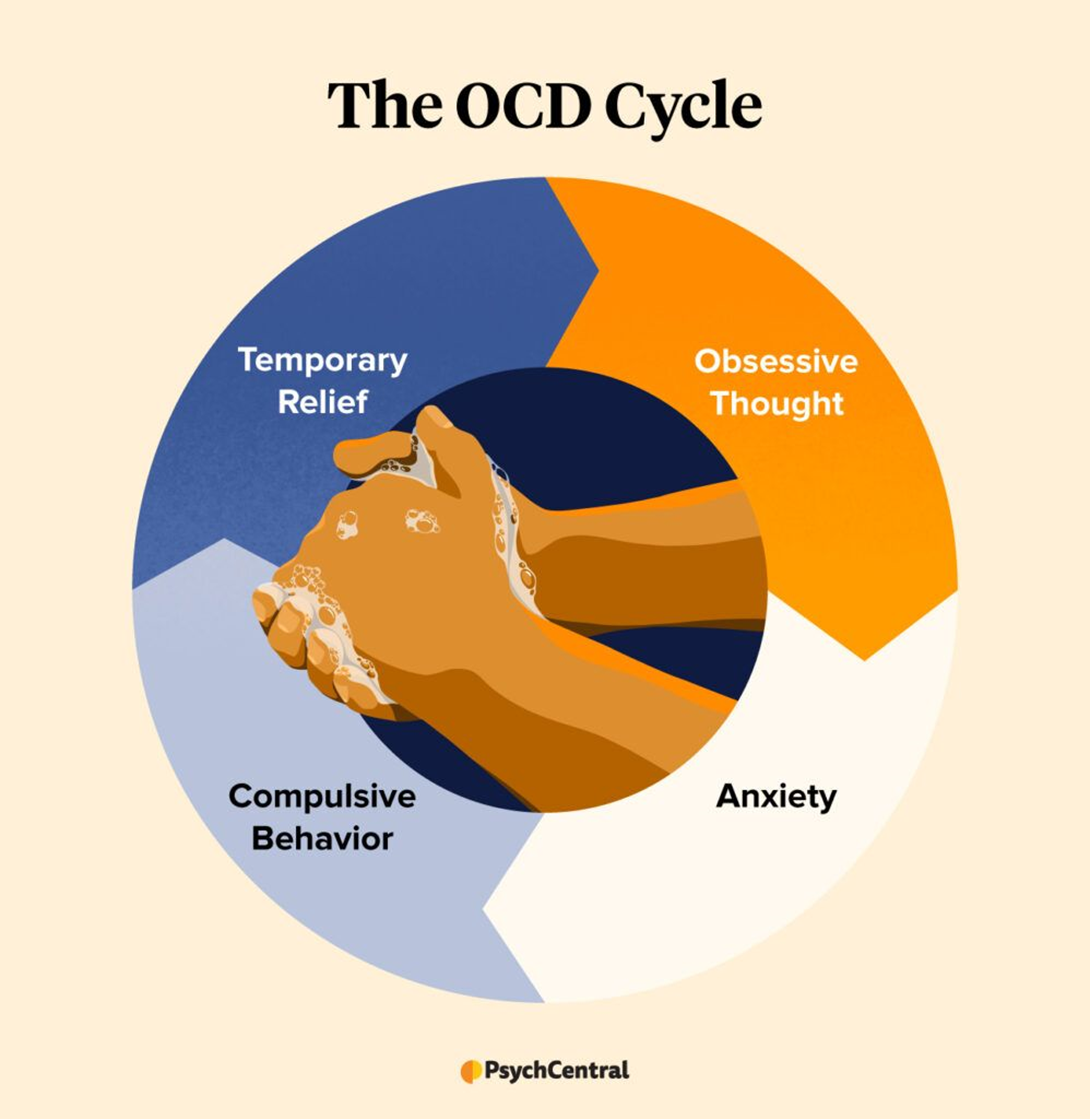A home-health nurse is assessing a client who has obsessive-compulsive disorder (OCD) and observes that the client engages in constant repetitive cleaning. The nurse knows that this behavior is an attempt to accomplish which of the following?
Prevent aggressive and impulsive behaviors.
Manipulate others.
Decrease the time available for interaction with people.
Decrease anxiety.
The Correct Answer is D
Choice A reason: OCD behaviors are not typically aimed at preventing aggressive and impulsive behaviors but are a response to anxiety-provoking obsessions.
Choice B reason: The repetitive behaviors associated with OCD, such as cleaning, are not intended to manipulate others but are compulsions that the individual feels driven to perform.
Choice C reason: The goal of repetitive cleaning in OCD is not to decrease social interaction time but to alleviate the distress caused by obsessive thoughts, often related to cleanliness or contamination.
Choice D reason: Repetitive cleaning in OCD is a compulsion that aims to decrease the anxiety caused by obsessive thoughts. It is a way for the individual to manage their anxiety and gain a sense of control over their environment.

Nursing Test Bank
Naxlex Comprehensive Predictor Exams
Related Questions
Correct Answer is ["B","C","D"]
Explanation
Choice A reason: This statement could be misleading and potentially harmful as it may encourage unhealthy weight goals. Optimal health is not necessarily correlated with being at or below a certain weight.
Choice B reason: Developing coping strategies to handle emotional issues is a key preventative measure against eating disorders, as it helps individuals manage stress without resorting to disordered eating behaviors.
Choice C reason: Encouraging realistic ideas about body shape and size and avoiding comparisons to an "ideal" can prevent the development of negative body image, which is often associated with eating disorders.
Choice D reason: Helping adolescents find achievable outcomes to increase self-esteem can reduce the risk of eating disorders, as low self-esteem is a known risk factor.
Correct Answer is ["A","B","C","D"]
Explanation
Choice A reason: Monitoring the client's weight daily is essential to track progress and adjust treatment plans accordingly.
Choice B reason: Staying with the client during and after meals helps prevent purging behaviors and provides emotional support.
Choice C reason: Providing small, frequent meals can help manage the client's intake without overwhelming them, which is suitable for someone with anorexia nervosa.
Choice D reason: Offering privileges for sustained weight gain can serve as positive reinforcement for healthy behaviors.
Choice E reason: Allowing the client to choose their meals is not recommended as it may lead to the selection of inadequate nutrition, which could hinder recovery.
Whether you are a student looking to ace your exams or a practicing nurse seeking to enhance your expertise , our nursing education contents will empower you with the confidence and competence to make a difference in the lives of patients and become a respected leader in the healthcare field.
Visit Naxlex, invest in your future and unlock endless possibilities with our unparalleled nursing education contents today
Report Wrong Answer on the Current Question
Do you disagree with the answer? If yes, what is your expected answer? Explain.
Kindly be descriptive with the issue you are facing.
